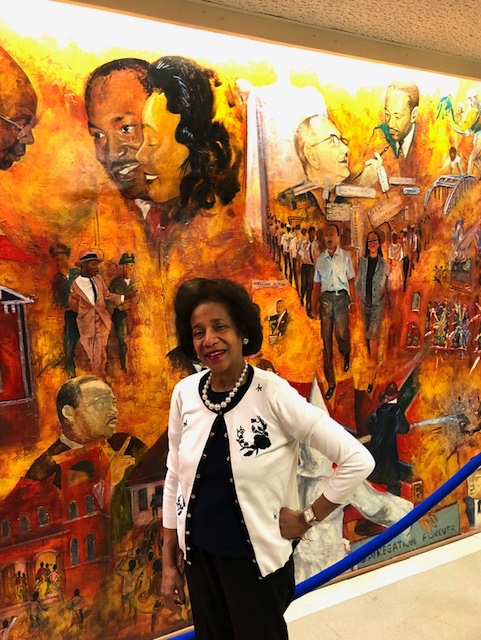
By Peggy Taylor
During the 1950s, when I was a teenager growing up in Montgomery, Alabama, I and my family were members of the Dexter Avenue Baptist Church, which Rev. King pastored from 1954 to 1960.
In 1955, at the time of the Montgomery bus boycott [a 13-month mass protest that ended with the U. S. Supreme Court ruling that segregation on public buses is unconstitutional], Rev. King received a request from a Quaker social service organization to suggest the names of Black youngsters who might want to live and study in an integrated setting in the North. He recommended me, and so I spent my senior year in 1957 with a loving Quaker family, Ken & Esther Recknagel, in New Jersey, where I graduated from Northern Valley Regional High School. From there I went to Oberlin College and from there to Paris and finally to New York, where, in 1979, as a rehearsal pianist, I moved into the Upper West Side’s Ansonia. I have lived here ever since.
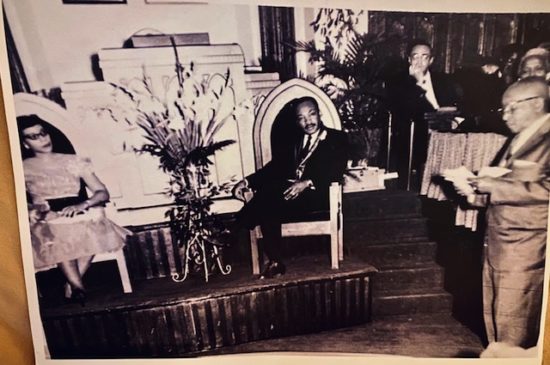
Growing up in Montgomery, I and my family attended church at Dexter every Sunday. We sat in the “Taylor Pew,” four rows from the front, not officially designated, but known by all that that row was reserved for the Taylor Family. My father, the bursar at nearby Alabama State College, was also treasurer of the church. So after church, he could be found in the church office, emptying the silver offering plates and counting the money.
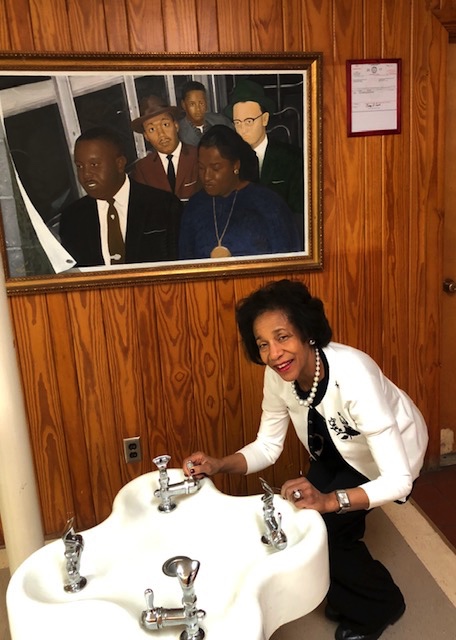
When the bus boycott was launched and Rev. King was chosen as its spokesman (even though many others helped organize it), I listened every Sunday to his passionate sermons exhorting the powers that be to end racial discrimination and segregation. Montgomery, like all Southern towns, was deeply segregated. We only ventured into white neighborhoods to admire the annual Christmas decorations. I learned as an adult that F. Scott Fitzgerald’s wife, Zelda Sayre, lived only a two-minute car ride from me. I knew that Montgomery had a Sayre Street, but never made the Sayre-Fitzgerald connection.
On the first day of the boycott, I and my classmates jumped up from our desks to peer out of the windows to see whether or not the Jackson Street bus was full or empty. It was empty and we cheered. My mother, although an elementary teacher at the Alabama State College Laboratory School, risked her job by shuttling some of the workers to and from their places of employment. She attended the mass meetings held to discuss the status of the boycott and vote on its continuation. This was something my father didn’t do, as he too was employed by the State, at Alabama State College, and his firing could have devastated our livelihood.
I once babysat the Kings’ eldest daughter, Yolanda, at the church parsonage, which today is a National Historic Site. Fortunately, it was not the night when the parsonage was bombed. Somebody left a bullet hole in the plate glass window of our living room on one occasion, but also fortunately when none of us was home.
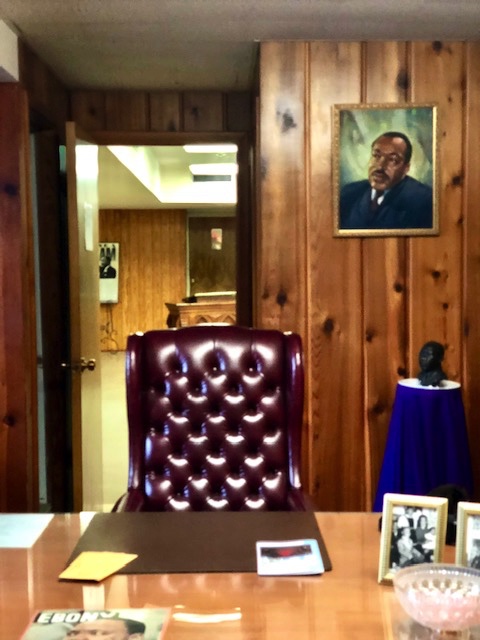
Rev. King’s sermons focused mainly on issues of social justice, but he also exhorted us young people to study and work hard so we would be prepared for opportunities which would come with integration. His weekly sermons and exhortations were eloquent and powerful. They still resonate and inspire me.
Peggy Taylor is the author of Streeteries, which the Rag featured.







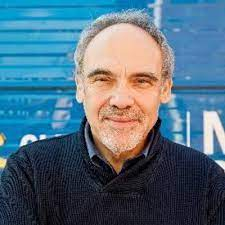

Thank you so much for sharing this story.
Thank you for these wonderful memories!
Wow! Wonderfully written and a historical treasure on the Kings and the Taylor Family.. what Rev Kind accomplished reminds us of the difficulty of his journey, yet he remained steadfast and resolute.
I appreciate the opportunity to read this!
Thank you for sharing these wonderful (and sometimes frightening!) stories!
It is very special to hear this story about someone who lived through and was an eyewitness to tremendous historical events. I am happy to have been able to learn details of these days in history and about your life accomplishments.
Thank you Ms. Taylor. What an amazing life you have lived!
I’ve been involved in just enough music to know a few rehearsal pianists and accompanists over the years,, and without exception they have brought their talents to New York from elsewhere and have fascinating stories. (Some wonderful people rely on these jobs – I worry for them in Pandemic Times, for sure.). This story takes the cake, however- what a treat to read the path you have taken, Peggy, and to have you share these recollections of being close to Dr King in his early Montgomery years. Thank you for bringing a hometown feel to this renowned and important time in our history!